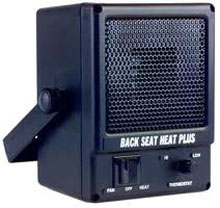
Electric Heaters Resources
- Home
- Efficient Electric Heaters
- Electric Heaters for Different Rooms
- Outdoor Electric Heaters
- Portable Electric Heaters
- 12 Volt Electric Heaters
- 220 Volt Heater
- 3 Phase Electrical Heater
- Above Ground Pool Electric Heater
- Antique Electric Heaters
- Baseboard Electronic Heaters
- Bathroom Electric Heaters
- Best Electric Heaters
- Buy Electric Heaters
- Car Electric Heaters
- Ceiling Electric Heaters
- Ceiling Mounted Electric Heaters
- Ceramic Electric Heaters
- Cheap Electric Heaters
- Commercial Electric Heaters
- Compact Electric Heaters
- Convection Electric Heaters
- DC Electric Heaters
- Economical Electric Heaters
- Efficient Electric Heaters
- Electric Heater Reviews
- Electric Heater With Thermostat
- Fahrenheat Electric Heaters
- Fan Forced Electric Heaters
- Fireplace Electric Heaters
- Flat Panel Electric Heaters
- Floor Electric Heaters
- Forced Air Electric Heaters
- Free Standing Electric Heaters
- General Electric Heaters
- Greenhouse Electric Heaters
- Halogen Electric Heaters
- Hanging Electric Heaters
- Heavy Duty Electric Heaters
- High Efficiency Electric Heaters
- Home Electric Heaters
- In Wall Electric Heaters
- Indoor Electric Heaters
- Industrial Electric Heaters
- Infrared Electric Heaters
- Infrared Electric Heater Reviews
- Large Electric Heaters
- Large Room Electric Heaters
- Low Wattage Electric Heaters
- Marine Electric Heater
- Mini Electric Heaters
- Non Electric Heaters
- Oil Electric Heaters
- Oil Filled Electric Heaters
- Overhead Electric Heaters
- Panel Electric Heaters
- Patio Electric Heaters
- Plug in Electric Heaters
- Process Electric Heaters
- Radiant Electric Heaters
- Recessed Electric Heaters
- Residential Electric Heaters
- RV Electric Heaters
- Safe Electric Heaters
- Small Electric Heaters
- Small Portable Electric Heaters
- Solar Electric Heaters
- Spa Electric Heaters
- Space Electric Heaters
- Swimming Pool Electric Heaters
- Toe kick Electric Heaters
- Tubular Electric Heaters
- Types of Electric Heaters
- Used Electric Heaters
- Vintage Electric Heaters
- Wall Electric Heaters
- Warehouse Electric Heaters
- Electric Heaters FAQ
DC electric heaters
Well, electricity expense is usually higher in times of winter as there is an increase use of electrical appliances – such as a DC electric heater. What is that? Well, in terms of electrical abbreviation, DC refers to Direct Current. So in short, the DC electric heaters are just electrical heaters that are operating on direct current.
Brief introduction to electric heaters
Well, we are all familiar with heaters run on electricity; it is used all the time during a cold day and mostly during winter season. Electrical heating refers to the process where electrical energy is converted into heat. DC electric heaters like any other electrical heaters works on the mechanism whereby an electrical resistor is used as the heating element. Calculation of electricity current through resistor and converted into heat is done using the Joule heating principle. Electric heaters come in various sizes, shapes, and even functions to suit the need of consumers.
Why use DC electric heaters?
DC electric heaters are often times being compared to their more affordable counterparts such as oil or gas powered heaters. There are many reasons to justify the amount that you are spending on a DC electric heater.
For starters, you have the liberty to choose the type, shape, size, color, or even functions to suit your need and taste (in the sense of preference of style). Smaller size electric heaters are convenient in the sense that it helps you save up space in your household, not to mention – smaller size equals more mobility.
Besides that, electricity powered heaters allowed for a better distribution of heat compared to its counterpart. DC electric heaters also come with controls which allows you to adjust the output (which is the degree/ temperature of heat that you need). Other than the temperature flexibility, DC electric heaters also offer time flexibility with the automatic timer.
Advice on safety when using DC electric heaters
DC electric heaters generate lots of heat through the use of electricity –there are some downsides in using electrical appliance, which is the concern for safety issues. For starters, perform a periodical check on the heater which also includes the cable and the plug of the heater.
Using a faulty cable or plug may cause overheating of the heater and may lead to issues in regards to fire. Besides that, users should always read the manufacturer’s guide or manual before using the electric heater Make sure to position the heater clear of curtain, furniture, or flammable items.
Placing it near furniture or solid items that blocks the ventilation of the heater may also result to overheating. Users should not leave heaters unattended in the presence of a child, as the child may be tempted to touch the heater. Unless stated otherwise, the heater should not be used in damp areas. Heaters should also be placed of flat grounds or furniture that has been stated to be safe, as tumbling of the heater may lead to damage of the parts inside of the heater.
